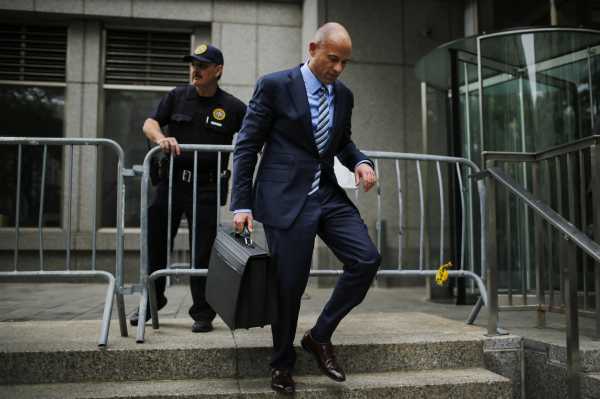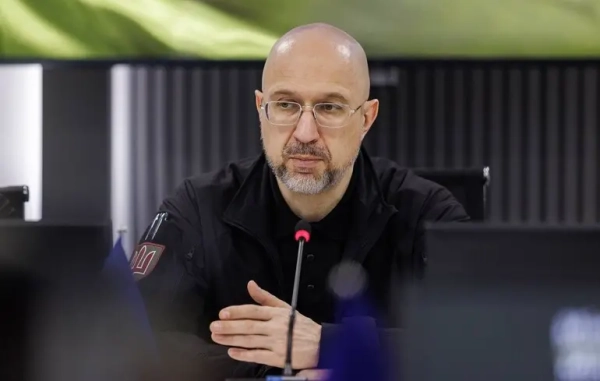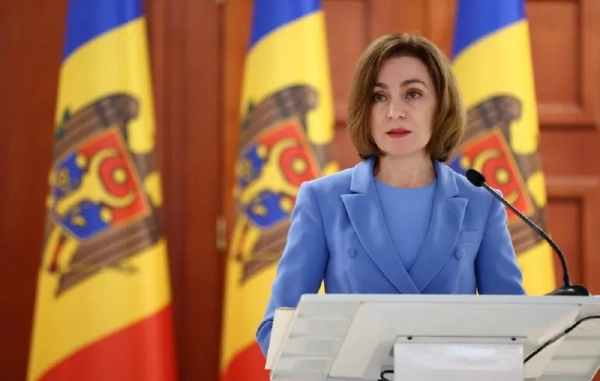
The Daniels litigation centrally concerns the conduct of Trump fixer Michael Cohen. Questions about Cohen’s conduct have raised the prospect that he may be under legal pressure to “flip” and start cooperating with special counsel Robert Mueller and potentially provide evidence against the president himself.
Recently Avenatti has started taking on an increasingly large public portfolio, expanding to try to serve as an all-around Trump enemy.
On June 19, he announced that he is representing a mother who was separated from her child by Trump’s “zero tolerance” border policies.
Two days later, he also claimed to be representing “whistleblowers within ICE.”
He also says he’s now representing John Melendez, the podcaster who tricked Donald Trump into believing he was on the phone with Sen. Bob Menendez (D-NJ).
Avenatti also has taken on congressional Democrats’ Supreme Court tactics, wants to reassure you that as president he would stand up to Vladimir Putin and appoint pro-abortion rights justices, and also thinks Trump’s trade policies are misguided.
That’s right, Stormy Daniels’s ubiquitous-on-cable lawyer seems to be setting the stage for a presidential run.
I both feel confident that Michael Avenatti is not going to be elected president and also deeply reluctant to issue confident predictions about the future of American politics after watching Trump win.
That, in many ways, is the real story here. Trump’s victory has set the stage for an incredible wave of “Why not me?” thinking when it comes to presidential campaigns, which is afflicting everyone from the mayor of Los Angeles to the CEO of Starbucks to a porn star’s lawyer.
And of all the “Why not me?” candidates, it’s Avenatti who in many ways most closely parallels Trump. He has an incredible nose for commanding attention and putting himself at the center of every story. On Twitter, Avenatti has taken to framing the issue as one in which America needs a “street fighter” to take on Trump — someone who doesn’t play by the ordinary rules of politics and who isn’t ashamed to take the low road. And while he hasn’t formally put himself forward as the street fighter America needs, he certainly does fit the bill.
That said, the focus on Trump’s media tactics and the alleged need to emulate them is in many ways misleading. In most respects, Trump is considerably less popular than we would expect from a president leading the country at a time of peace and prosperity. And as funny as it sounds, critics should open themselves up to the possibility that such political success as Trump has found was driven by his positions on the issues rather than by his antics — while Avenatti is pure antics.
Who is Michael Avenatti?
As of February 2018, Michael Avenatti was well-known in legal circles as a successful litigator, but not in politics.
He graduated from George Washington University law school in 1999 with top marks, and then went to work in the LA office of the large law firm O’Melveny and Myers. There, Avenatti worked on a number of celebrity cases, including work for Christina Aguilera, a lawsuit that was filed against the makers of the movie K-19: The Widowmaker, and a case where he helped Don Henley and Glenn Frey defend themselves against a lawsuit by their former Eagles bandmate Don Felder.
He shifted to a boutique law firm in LA where he pursued a defamation case against Paris Hilton, sued the big-four accounting firm KPMG for embezzlement, and — foreshadowing things to come — sued Donald Trump and Mark Burnett, alleging that they had stolen his client’s ideas to bring The Apprentice to the small screen. (The lawsuit settled.)
Avenatti also won a very noteworthy $454 million verdict against Kimberly-Clark and Halyard health that was later knocked down to $21.7 million by a judge on appeal.
Litigators like Avenatti are unusual in that, unlike other small-business owners, they are typically Democrats. In a political economy sense, to make a good living suing people you want there to be a lot of laws and regulations that create potential causes of action. And you want judges in place who — unlike the judge who reduced the punitive damages amount of that huge case by 95 percent — are inclined to side against deep-pocketed businesses and wealthy individuals.
Alternatively, if you’re a smart, young, hard-working lawyer with progressive political convictions, and you also like money going out and winning large verdicts against rich companies that broke the rules, this line of work suggests itself as one of the most ethical ways to get rich.
And, indeed, back when he was a student, Avenatti worked for an oppo research firm run by Rahm Emanuel, who later went on to be Barack Obama’s chief of staff and is now mayor of Chicago. So the attorney clearly has an interest in progressive politics that predates his career as a litigator.
As an attorney, he’s also always been something of a publicity hound, with multiple 60 Minutes appearances under his belt even before any of us had heard of Stormy Daniels.
Stormy Daniels made Avenatti a political star
In March of 2018, Avenatti burst into the political world as an attorney for a porn actress named Stormy Daniels.
Daniels, according to Avenatti, had an affair with Donald Trump years ago. She was legally unable to discuss it due to a non
On its face, the stakes in this litigation are incredibly low. The alleged affair, despite Cohen’s effort to enforce the NDA, has gotten out into the media anyway. And while in ordinary times the revelation that the president had an affair with a porn actress would be a big political story, Trump never had a reputation as an upstanding family man in the first place.
If Trump had just released Daniels from the agreement (while continuing to officially deny the affair), it’s possible the whole thing would have blown over. But for whatever reason (more on this later), Trump did not take this approach and litigation proceeded, keeping the story in the public eye.
The publicity around the case immediately raised a separate legal question. Given the October 2016 timing of the payment, it seems that either Donald Trump illegally failed to disclose a campaign expenditure, or else that Cohen paid out of pocket and made an illegal campaign contribution. Trumpworld ended up telling an incredible series of shifting and inconsistent stories about what exactly happened here that raised interest in the story.
Avenatti’s own very aggressive media tactics — appearing constantly on cable, teasing new developments on Twitter, and positioning the Daniels litigation as about the future of the country and not just one woman’s desire to wriggle out of an NDA — kept the story on the front-burner for weeks, leading to a diverging set of views of Avenatti.
On the one hand, in certain #resistance circles he became a cult hero for his ability to keep his client and her story in the news even though so many other Trump stories — including objectively more damning ones like Summer Zervos’s sexual assault allegations — seem to just drop off the front page.
On the other hand, to both Democratic Party political pros and their left-wing activist antagonists, keeping the media lens on Trump scandals rather than substantive issues like taxes and health care is objectively counterproductive. Then things went nuclear when Cohen’s legal work ended up being the subject of a criminal investigation.
Michael Cohen seems to be in big legal trouble
Cohen had, for years, been a central figure in Donald Trump’s life as both an attorney and all-around “fix it guy.” But he didn’t follow Trump into the White House after his presidential victory, and appeared to have been relegated to the role of bit player in Trumpworld.
But the Daniels litigation put him in an awkward spot: Either admit to a campaign finance violation or else point the finger at a president to whom he was still deeply loyal. But then, suddenly, Cohen’s legal troubles got much larger, as federal law enforcement officials operating out of the Southern District of New York took the very unusual step of raiding a lawyer’s office.
No criminal charges have been filed against Cohen yet, but that prosecutors asked for, and received, permission to raid a lawyer indicates that they have some kind evidence of serious criminal wrongdoing,
This is intriguing to Trump-haters on two levels. First of all, Cohen, through his Ukrainian-born wife and her family and some of his pre-Trump business dealings, has a lot of connections to the former Soviet Union. He did work for the Trump Organization in that part of the world. So whatever it is that Cohen is accused of doing could relate to Russia or Russian people.
Secondarily, the legal heat on Cohen could induce him to flip on Trump and begin giving evidence to Mueller or others of illegal activity involving Trump himself.
None of this strictly has much of anything to do with Avenatti, but since Avenatti’s lawsuit brought Cohen’s name back to public attention, and since Mueller’s team doesn’t do any media but Avenatti loves attention, he’s kind of glommed onto Cohen’s apparent criminal troubles as an Avenatti PR strategy.
But with the news cycle having now largely moved on from these issues, Avenatti is currently keeping himself in the public eye by chasing Trump news to the US-Mexico border and wherever else he can go. Either in an effort to run for president or land a TV contract or maybe both.
There’s more to Trump’s politics than tweets
There’s a theory that if Trump can be elected president, so can anyone else with a knack for getting attention. It certainly has some appeal.
But it also misses some critical elements of Trump’s rise to power, most importantly the role of issues. Yes, it’s true that nobody is mistaking Trump for a policy wonk. And it sounds odd in many ways to say that he ran an issue-oriented campaign.
But especially in the primaries, he gained support with a distinctive message — restrictionist on immigration and protectionist on trade — that many rank-and-file Republicans believed in but that few big-name figures in Republican Party politics were embracing.
Trump’s media savvy helps explain why he broke through in a way that, say, Jeff Sessions never did. But once he did break through, GOP primary voters heard a message that was substantively different from the one Jeb Bush and Marco Rubio had to offer.
By the same token, as a general election candidate Trump wasn’t just a “street fighter” in a way that Mitt Romney wasn’t. He pitched a method that was more hostile to immigrants and foreign trade deals and less hostile to Social Security and Medicare than Romney’s. This difference in message goes a far way toward explaining how he won over some former Obama voters.
Indeed, it’s far from clear that Trump’s unorthodox communications strategy and aggressive counterpunching are actually effective. As Vox’s Ezra Klein writes, the most striking thing about Trump’s approval rating is how low it is given the low unemployment rate and solid consumer confidence numbers.
Meanwhile, if you pay attention to what Avenatti is actually saying, none of it is very interesting. He appears to be exactly what you would expect from a Los Angeles-based trial lawyer — a conventional orthodox Democrat who thinks Donald Trump is bad and immigrants are good. There’s nothing wrong with those beliefs, but they in no way distinguish him from any number of more typical presidential contenders.
That said, there certainly is a place where a combination of media-savvy and conventional opinions can pay off: cable news, where Avenatti is said to be pitching a Crossfire-style show that he would co-host with Anthony Scaramucci.
That plan makes a lot more sense than a presidential campaign. It would play well to both Avenatti’s skill-set and to his existing fan base of Trump-hating political junkies.
On the other hand, many of us spent the bulk of 2015 and 2016 thinking that a cable news venture would make more sense for Trump than the presidency and assuming that his entire campaign was some kind of elaborate setup for a new media outlet. Predictions, it turns out, are hard — especially about the future.
Sourse: vox.com






